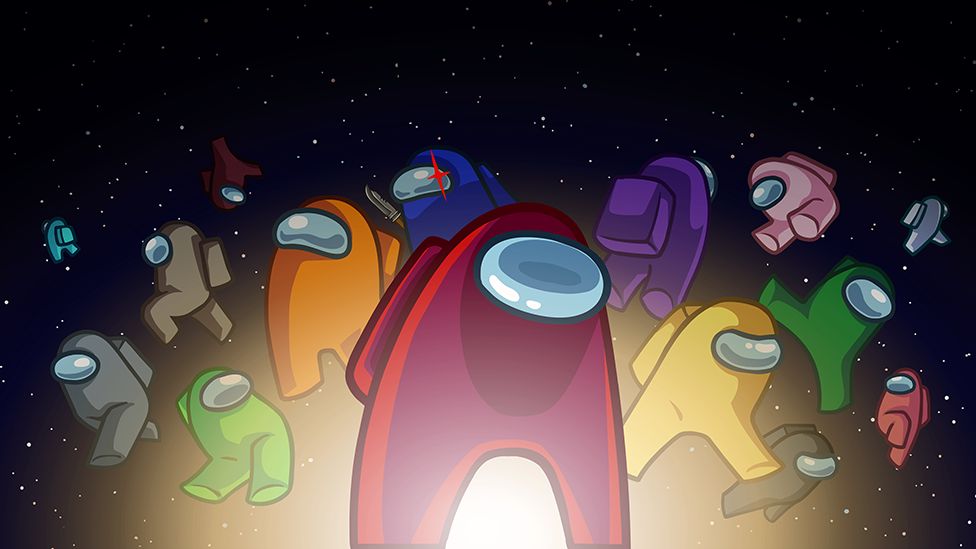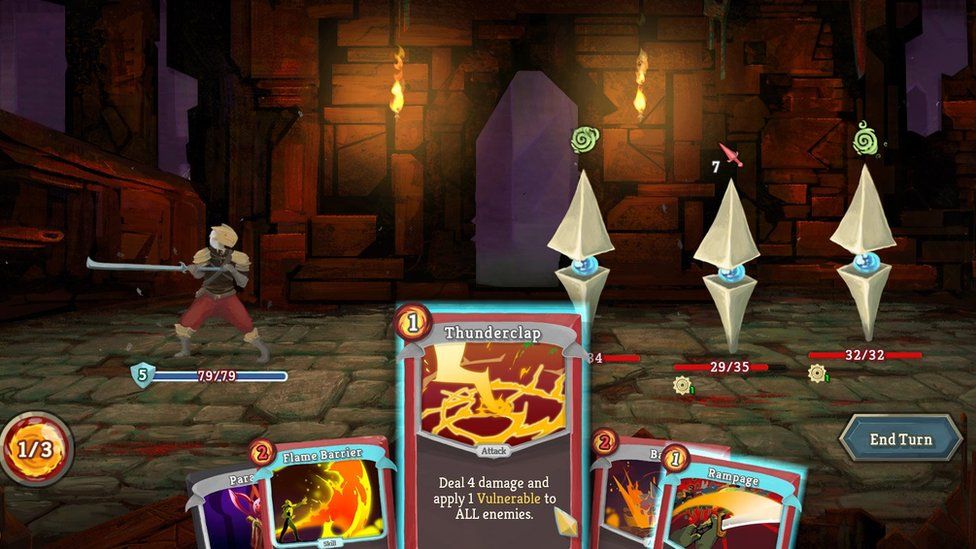Unity engine: Among Us and Slay the Spire makers join criticism

What do hit indie games Among Us, Slay the Spire and Cult of the Lamb all have in common?
They’re all made with the Unity engine – a development tool that’s popular with smaller studios.
Or, at least, it was, until its owner announced plans to introduce a new pricing strategy.
Now those behind some beloved sleeper hits are threatening to ditch the tech and warning of possible delays to new releases.
An engine is a set of tools handling elements like animation and audio that provides the foundation or framework for a game.
It’s possible to make one from scratch, but complicated, so companies often use ready-made versions to save time.
Unity, alongside Epic’s Unreal Engine, is one of the most commonly used examples.
Furious response
Earlier this week the company said it wanted to charge its customers a fee every time someone installed a game based on the engine.
It said the charge would only kick in once a game hit a certain number of downloads, but could be as much as $0.20 (£0.16 GBP) at the top level.
This generated a quick, angry response across the games industry.
Garry Newman, creator of popular Garry’s Mod and founder of Facepunch Studios, said the move had left people “furious”.
“That would be like Adobe charging all users of Photoshop per image view,” he said.
Developers also accused the company of violating their trust, and raised questions about how the charge would be applied.
In particular, developers worried about being charged for installations of pirate copies, and potential effect that being promoted on a subscription service like Microsoft Game Pass could have.
Unity was forced to issue a statement clarifying some of the conditions of its new fees and insisted the “majority of developers” wouldn’t be affected, but that was also heavily criticised.

Some notable independent developers warned that they would stop using Unity if it stuck to its plan, with a knock-on effect on their current projects.
Innersloth, the maker of Among Us, said it would have to “delay content and features our players actually want” to bring the game to a new engine.
In its first-ever public statement, Slay the Spire maker Mega Crit said it had spent the past two years working on a new game in Unity.
Despite putting an “immense amount of time and effort” into that title, they said they would move to a new engine if the changes weren’t abandoned.
Aggro Crab, maker of quirky hit Going Under, said dropping Unity would also mean losing the “wealth of expertise” it had gained from using the platform.
And Massive Monster, creator of Cult of the Lamb, said the change would mean “significant delays” to future releases.
It signed off its statement by urging Unity to “quit being stinky”.
The Unity engine was also used to make mega-hits Pokemon Go and Genshin Impact, but it’s less clear if those titles will be affected.
Pokemon Go maker Niantic told BBC Newsbeat it wasn’t able to comment on the situation at the moment.
We’ve also contacted Microsoft to ask if Game Pass downloads will be affected, and Valve, owners of the Steam game store.


Related Topics
-
-
6 September

-
-
-
23 August

-


